Space
Sign up for our newsletter
We summarize the week's scientific breakthroughs every Thursday.
-
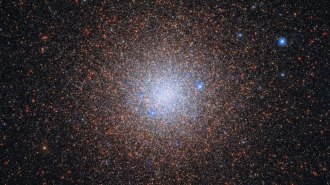 Space
SpaceA spherical star cluster has surprisingly few heavy elements
A globular cluster in the nearby Andromeda galaxy challenges conventional wisdom about how galaxies form.
-
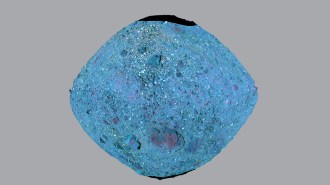 Space
SpaceThe asteroid Bennu’s brittle boulders may make grabbing a sample easier
NASA’s OSIRIS-REx spacecraft is about to collect a bit of asteroid Bennu. Here’s why it’s good that new research suggests its boulders are brittle.
-
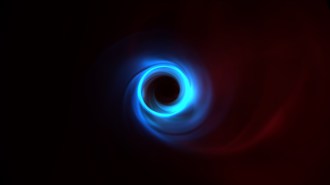 Space
SpaceThe first black hole image helped test general relativity in a new way
The Event Horizon Telescope’s iconic image of the black hole at the center of galaxy M87 once again shows Einstein was right.
-
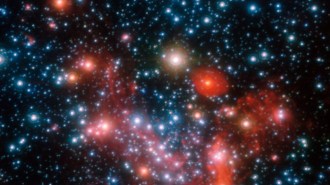 Astronomy
AstronomyThe Milky Way’s most massive star cluster may have eaten a smaller cluster
Observations of newfound stars suggest how the gathering of stars at the galaxy’s core grew so big.
By Ken Croswell -
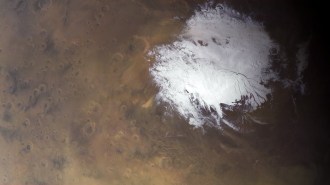 Space
SpaceA ‘lake’ on Mars may be surrounded by more pools of water
Radar data hint at patches of liquid water beneath Martian polar ice, but some urge caution in interpreting results.
-
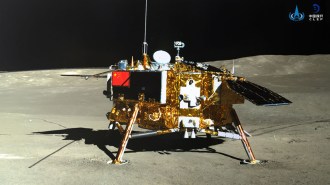 Space
SpaceA new moon radiation measurement may help determine health risks to astronauts
China's lunar lander measured radiation at the moon’s surface, finding the daily dose is 2.6 times as high as inside the International Space Station.
-
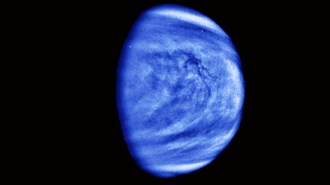 Space
SpaceHope for life on Venus survives for centuries against all odds
Early scientists often assumed that Venus, though hotter than Earth, hosted life.
-
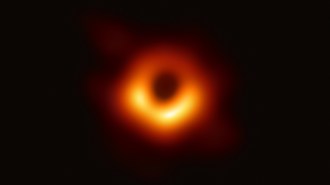 Space
SpaceEHT data show turbulence makes the glowing ring around M87’s black hole wobble
Event Horizon Telescope data spanning nearly a decade reveal that the appearance of the supermassive black hole inside galaxy M87 changes over time.
-
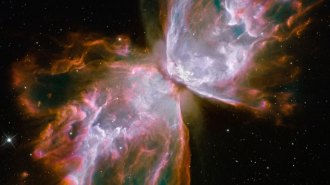 Space
SpaceStellar winds hint at how planetary nebulae get their stunning shapes
Observations of red giant stars reveal that planets or even other stars may influence the shape of a nebula’s cloud of dust and gas.
-
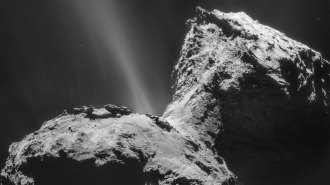 Planetary Science
Planetary ScienceRosetta data reveal an invisible ultraviolet aurora around comet 67P
Solar wind electrons smash water molecules in the comet’s coma to make the 67P/Churyumov-Gerasimenko’s version of the northern lights.
-
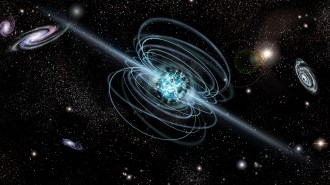 Space
SpaceNeutrinos could reveal how fast radio bursts are launched
Highly magnetized stellar corpses called magnetars may be the source of two different cosmic enigmas: fast radio bursts and high-energy neutrinos.
-
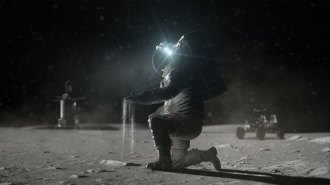 Space
SpaceHow do you clean up clingy space dust? Zap it with an electron beam
An electron beam is the newest addition to a suite of technologies for cleaning sticky and damaging lunar dust off surfaces.
By Jack J. Lee